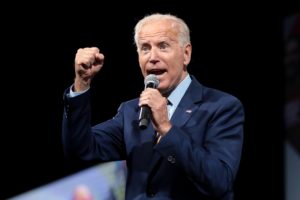Ilhan Omar Makes Her Move into the Mainstream
Omar’s stature as an insider makes her a rallying point for Democratic Party unity. U.S. Congresswoman Ilhan Omar / Flickr
U.S. Congresswoman Ilhan Omar / Flickr
Only six months ago, U.S. Rep. Ilhan Omar’s future looked cloudy, her political base shaken. She had barely fended off a primary challenge. Her political judgments appeared questionable. Her critics appeared to have grown in number.
Now House Speaker Kevin McCarthy and his Republican allies have shoved her off the House Foreign Affairs Committee. It might look like she has been brought low. Yet the opposite is true. Omar’s ouster caps her rapid rise in stature in her party—not as a gadfly, but as an insider and a rallying point for Democratic Party unity.
Omar got into the U.S. House as a boat-rocker, defeating a long-serving incumbent in a 2016 legislative race before running for Congress in 2018. She replaced Keith Ellison in the 5th District metro Minneapolis seat.
Omar is a woman and wears a hijab, which inflames Islamophobic as well as sexist opposition to her. Her comments concerning the impact of pro-Israel campaign contributions and the commitments of American Jews to the state of Israel—delivered in a flippant tone better suited to Twitter than to Congress—alienated many in her own party. On the other hand, a lot of progressive voters in the district have been proud to support a Muslim woman, and they admire Omar’s willingness to advocate for Palestine and to criticize imperialism and its legacies. Ellison, also a Muslim, remains a beloved figure among vast numbers of DFLers in Minnesota.
Omar had championed police reform measures that became associated with the “Defund the Police” slogan.
Neither Islamophobia nor sexism explains why Don Samuels almost defeated Omar in her August primary. In 2020, Antone Melton-Meaux primaried her. He was actively supported by pro-Israel groups (which stayed away from the race this year). Omar beat Melton-Meaux easily.
In 2022, Omar faced a new kind of challenge from Samuels, her strongest conceivable opponent. People who know Minneapolis politics knew this would be a real race as soon as Samuels declared. He has deep and extensive connections in the historic Black community of North Minneapolis.
Omar had championed police reform measures that became associated with the “Defund the Police” slogan that proved politically toxic over the past two years. In 2021, she supported a Minneapolis ballot measure that would have replaced the city police department with something new. She also had intervened, needlessly, in city politics by opposing the reelection of Mayor Jacob Frey, who had staked his campaign on his opposition to that ballot measure—and who reaped the rewards by getting stronger support from Black than from white Minneapolitans as he emerged victorious.
Then, in November of 2021, Omar, along with other members of the progressive “Squad” in the U.S. House, voted against the Bipartisan Infrastructure Bill. They wanted the far more expansive Build Back Better legislation to pass first—but the infrastructure bill was all that President Joe Biden could get through both the House and Senate at the time. It was that or nothing. The infrastructure bill had progressive features and is bringing significant money to Minnesota. Omar was not supporting the governing agenda of her party’s sitting president, a stance that was not especially popular among DFLers, even progressive ones.
After Omar’s close call in August 2022 came her turnabout. As detailed in the national press she worked closely with Rep. Josh Gottheimer of New Jersey, a moderate Democrat, to salvage the compromise Invest to Protect Act of 2022. The law will provide more, not less, federal funding to local police departments, while emphasizing mental health support and violence de-escalation training. Other squad members—Reps. Rashida Tlaib of Michigan, Cori Bush of Missouri, Alexandria Ocasio-Cortez of New York, and Ayanna Pressley of Massachusetts—voted against it. Omar’s new pragmatism seemed to show she had gotten the message from the DFL voters in her district. Samuels had criticized her for not being a team player, and she showed she knows how to be just that.
Omar has mended fences with Democratic colleagues who have found her Israel-related comments grating
Congressional progressives are tactically divided. Representative Pramila Jayapal of Washington leads the faction that wants to be in “The Room Where It Happens,” to quote from Lin-Manuel Miranda’s “Hamilton.” They believe that supporting their party’s leadership is the path to positive policy change. Ocasio-Cortez and her allies remain inclined to stake out maximal positions in the hope of shifting national debate leftward. For now, Omar has sided with Jayapal. Perhaps this will not last, but the politics of Omar’s district favors her new direction.
McCarthy thinks it’s all gain, no pain for him to serve up a Muslim, immigrant Black woman who has been critical of the U.S. as red meat to his party’s base. Yet he may have misunderstood Omar’s rising position within her caucus and the respect she has gotten for her serious, well-informed attention to African issues on the Foreign Affairs Committee.
She has mended fences with Democratic colleagues who have found her Israel-related comments grating—recently signing on to a House resolution supporting Israel. U.S. Rep. Dean Phillips, a Jewish colleague who increasingly looks poised for statewide office, has defended her against charges of antisemitism. (Phillips and Omar are in position to help one another, and Phillips comes out of this episode smelling like a rose.)
Her party’s ranks rallied around her, and whenever Democrats retake House control in Washington, Omar may turn up in “The Room Where It Happens” on future occasions.
Your support matters…Independent journalism is under threat and overshadowed by heavily funded mainstream media.
You can help level the playing field. Become a member.
Your tax-deductible contribution keeps us digging beneath the headlines to give you thought-provoking, investigative reporting and analysis that unearths what's really happening- without compromise.
Give today to support our courageous, independent journalists.






Politics, the art of the possible..
It may be seen as regrettably necessary for an elected member of Congress to have to go along to get along, but reality bites after all.
Omar's positions may seem more mainstream but I am confident that she yet leans in the right direction, which, of course, is left...lol